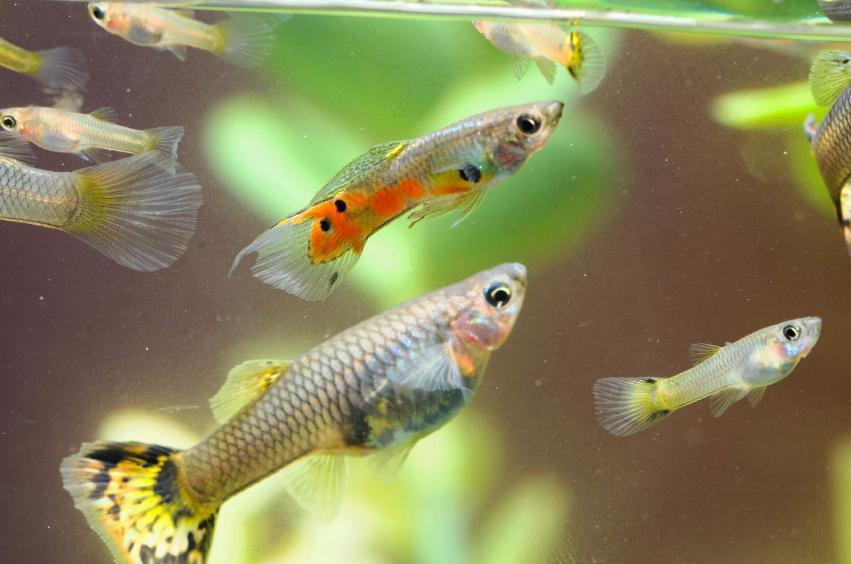How do You Know if Your Fish Is Pregnant
If you’re a fish owner and have noticed some changes in your fish’s behavior and appearance, you may be wondering if your fish is pregnant. Just like many other animals, fish can also become pregnant, and it’s important to be able to recognize the signs so you can provide the proper care. In this article, we will explore how to tell if your fish is pregnant and what to do if you suspect that she is.
Behavioral Changes
One of the first signs that your fish may be pregnant is a change in behavior. This can include increased aggression, territorial behavior, or a change in appetite. Some fish may also become more reclusive or hide more often. If you notice any of these behavioral changes in your fish, it could be a sign that she is pregnant.
Physical Changes
In addition to changes in behavior, pregnant fish will also experience physical changes. One of the most noticeable signs is a swollen or enlarged belly. This is often the most tell-tale sign that your fish may be expecting. You may also notice that the fish’s scales appear to be stretched or protruding, and her body may appear more rounded than usual. Keep in mind that these physical changes can vary depending on the species of fish, so it’s important to research the specific signs for your fish’s breed.
Spawning Behavior
Another indication that your fish may be pregnant is spawning behavior. Some species of fish exhibit specific behaviors when they are ready to spawn, such as building nests, digging in the substrate, or displaying courtship behaviors. If you notice this type of behavior in your fish, it’s a strong indicator that she may be pregnant.
Change in Coloration
Pregnant fish may also undergo changes in coloration. Some fish may develop deeper or brighter colors, while others may appear more dull or faded. These changes can be subtle, so it’s important to observe your fish closely and take note of any changes in her appearance.
How to Confirm Pregnancy
If you suspect that your fish may be pregnant, there are a few ways to confirm it. The most reliable method is to observe the fish for an extended period of time and look for physical changes such as a protruding belly or visible eggs. You can also consult with a veterinarian or a knowledgeable fish breeder to confirm the pregnancy and receive advice on how to care for your pregnant fish.
Caring for a Pregnant Fish
Once you have confirmed that your fish is pregnant, it’s important to provide the proper care to ensure the health and safety of both the mother and her offspring. Here are some tips for caring for a pregnant fish:
Adjusting the Tank Conditions
Pregnant fish may have specific needs when it comes to water quality and tank conditions. It’s important to maintain optimal water parameters, including temperature, pH levels, and cleanliness. Some species of fish may also require specific water conditions for breeding and spawning, so be sure to research the specific needs of your fish.
Feeding a Pregnant Fish
Pregnant fish may require a specialized diet to support their increased energy needs and the development of their offspring. You may need to provide a varied diet that includes high-quality flake or pellet food, as well as live or frozen foods such as brine shrimp, bloodworms, or daphnia. It’s important to feed pregnant fish sparingly and frequently to prevent overfeeding and maintain water quality.
Providing Hiding Places
Pregnant fish may seek out hiding places to feel safe and secure, especially when they are close to giving birth. Adding plants, caves, or other decorations to the tank can provide hiding spots for the pregnant fish and give the offspring a place to hide once they are born.
Separating the Mother
In some cases, it may be beneficial to separate the pregnant fish from other tankmates to reduce stress and prevent aggression. This can be done by placing the pregnant fish in a separate breeding tank or using a breeding net within the main tank. This will also make it easier to monitor the pregnant fish and ensure the safety of the offspring.
What to Do After the Birth
Once your fish has given birth, it’s important to provide the proper care for the newborn fry. Here’s what you need to do after the birth:
Feeding the New Fry
After the fry are born, it’s important to provide them with the proper nutrition to support their growth and development. You may need to feed them specialized fry food, infusoria, or freshly hatched brine shrimp to ensure that they receive the nutrients they need to thrive.
Separating the Fry
Depending on the species of fish, it may be necessary to separate the fry from the adult fish to prevent them from being eaten. You can use a breeding tank, net, or floating breeder box to keep the fry safe until they are large enough to be introduced to the main tank.
Monitoring Water Quality
As the fry grow, it’s important to closely monitor water quality and perform regular water changes to maintain a healthy environment for the growing fish. Be sure to test the water parameters frequently and make adjustments as needed to ensure the health and wellbeing of the fry.
Providing Adequate Space
As the fry grow, they will need more space to move and explore. It’s important to provide a well-equipped and spacious tank to accommodate the growing fish and ensure that they have enough room to thrive.
Conclusion
In conclusion, knowing how to recognize the signs of a pregnant fish and providing the proper care is essential for the health and wellbeing of your fish and her offspring. By observing your fish closely and making the necessary adjustments to their care, you can ensure a successful pregnancy and the healthy growth of the newborn fry. If you have any concerns or questions about caring for a pregnant fish, don’t hesitate to seek advice from a veterinarian or experienced fish breeder to provide the best possible care for your fish.

